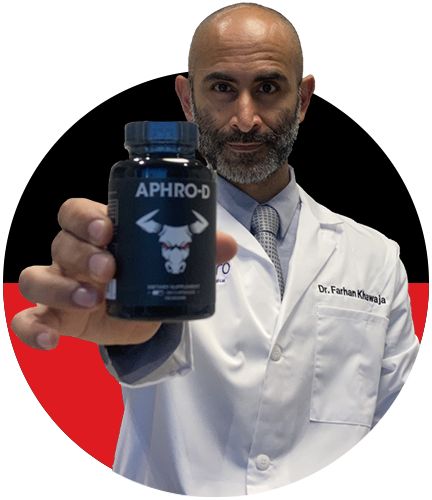Introduction
Throughout history, humans have sought ways to enhance their vitality and well-being. From ancient civilizations to modern societies, the quest for improved physical performance, increased libido, and overall hormonal balance have been a recurring theme. Among the various remedies and practices that have emerged, herbs have long held a special place in traditional medicine for their potential to support testosterone levels.
In this blog post, we embark on a captivating journey through time to uncover the historical significance of herbs that have been associated with boosting testosterone. We will delve into the wisdom of ancient civilizations, exploring the knowledge passed down through generations and the herbs they revered for their potential hormonal benefits.
Join us as we traverse the landscapes of ancient China, where Traditional Chinese Medicine (TCM) thrived, and the vibrant world of Ayurveda in old India. We will unveil the herbs that captured the attention of healers and herbalists, and discover the beliefs and practices that shaped their use.
From the resplendent Ashwagandha of Ayurveda, renowned for its adaptogenic properties, to the elusive Tongkat Ali that captivated the senses of Southeast Asian cultures, each herb tells a story of its own. We will examine the historical context in which these herbs were first recognized and explore the traditional uses attributed to them.
In our quest for knowledge, we will also examine the modern scientific understanding of these herbs and their potential impact on testosterone levels. We’ll uncover the research conducted thus far, shedding light on the current state of evidence and what it reveals about the efficacy of these herbs.
While the path may be winding, it is through this exploration that we aim to bridge the gap between ancient wisdom and modern science. By understanding the historical significance of these testosterone-boosting herbs, we can gain valuable insights into their traditional applications and make informed decisions about their relevance in today’s world.
So, grab a metaphorical walking stick and prepare to embark on an enlightening voyage into the history of herbs that have tantalized our imagination, promising to unlock the secrets of testosterone enhancement. Together, let us unveil the power of nature and discover the wonders that lie within these time-honored botanical allies.
Tongkat Ali
Tongkat Ali, also known as Eurycoma longifolia, is a herb that has captivated the imaginations of Southeast Asian cultures for centuries. Originating in Malaysia, Indonesia, and surrounding regions, this powerful botanical has significantly influenced traditional medicine practices. Known locally as “Malaysia’s home-grown Viagra,”
Tongkat Ali has been revered for its potential aphrodisiac properties and its ability to support testosterone levels. Its rich history traces back to ancient times when it was used by indigenous communities to enhance male virility and fertility. Tales of its potency spread across generations, leading to its widespread use as a natural remedy for sexual health and vitality. Today, Tongkat Ali continues to attract attention as scientists and researchers explore its potential benefits, aiming to unlock the secrets of this legendary herb.
Tongkat Ali is perhaps the most potent testosterone-boosting herb, especially when sourced properly. It separates itself from other herbs associated with T boosting by increasing fertility and bedroom performance and directly increasing T levels.
Schisandra Berry
Schisandra berry, also known as Wu Wei Zi in Traditional Chinese Medicine (TCM), has a fascinating history that stretches back thousands of years. Native to China and Russia, this small, vibrant red fruit has been treasured for its unique combination of five distinct flavors—sour, sweet, bitter, salty, and pungent. In ancient China, schisandra was regarded as one of the most prized tonics, believed to possess a harmonizing effect on the body and mind. It was revered for its adaptogenic properties, helping individuals combat stress, increase endurance, and improve mental clarity. The berry’s name itself reflects its esteemed status, as “Wu Wei Zi” translates to “five-flavor fruit.”
Schisandra berry found its way into the annals of Chinese medicine, appearing in classic texts like the Shen Nong Ben Cao Jing, which dates back over 2,000 years. Today, schisandra continues to be celebrated for its potential health benefits, attracting attention worldwide as individuals explore its traditional uses and its potential as an adaptogen and general tonic.
The ability for schisandra berry to influence and modulate blood flow makes it next level when it comes to not only hormonal signaling, but for increasing the blood flow to working muscles and arousal for male performance.
He Shou Wu
He Shou Wu, also known as Fo-Ti or Polygonum multiflorum, has a rich and fascinating history rooted in traditional Chinese medicine. Originating in China, this herb has been highly regarded for centuries for its potential health benefits and longevity-promoting properties. Legend has it that He Shou Wu was named after an elderly man named Mr. He, who restored his vitality, youthful appearance, and fertility by regularly consuming the herb. Inspired by this remarkable transformation, the herb was named “He Shou Wu,” which translates to “Mr. He’s Black Hair.”
In traditional Chinese medicine, He Shou Wu has been traditionally used as a tonic to support the liver and kidney functions, nourish the blood, and promote overall well-being. It is often sought after for its potential to strengthen hair, promote healthy aging, and enhance vitality. The herb has been documented in classic texts such as the “Ben Cao Gang Mu,” a renowned Chinese pharmacopoeia. Today, He Shou Wu continues to be embraced by those seeking to tap into its historical wisdom and explore its potential benefits in supporting wellness and longevity.
He Shou Wu’s ability to help the body detox is a powerful pathway to aid in metabolism to lose body fat, extending the increase of testosterone from a tissue standpoint.
Pearl Powder
Pearl powder, a prized ingredient in traditional Chinese medicine and beauty rituals, holds a captivating history that spans centuries. Extracted from finely ground pearls, this shimmering substance has long been revered in Chinese culture for its skin-enhancing and rejuvenating properties. The use of pearl powder dates back to ancient China, where it was believed to be a potent elixir for radiant and youthful skin. Chinese empresses and noblewomen adorned themselves with pearl-infused skincare preparations to achieve a luminous complexion. In addition to its cosmetic applications, pearl powder was also valued in traditional Chinese medicine for its potential to calm the mind, support relaxation, and promote overall well-being. Its use can be traced to classic texts such as the “Compendium of Materia Medica,” written by the esteemed herbalist Li Shizhen during the Ming Dynasty.
Today, pearl powder continues to captivate the beauty industry and wellness enthusiasts worldwide, as its historical significance and potential benefits are rediscovered and embraced in modern skincare routines and holistic practices.
Pearl powder is huge when it comes to its calming nature and stabilizing effects for fostering testosterone production. Most people forget the balanced sides of recovery in order to increase that vigor when they need it.
Ashwagandha
Ashwagandha, known as the “Indian ginseng” or scientifically as Withania somnifera, has a rich history deeply rooted in Ayurvedic medicine, one of the oldest healing systems in the world. Native to the dry regions of India, Pakistan, and Sri Lanka, this ancient herb has been revered for over 3,000 years for its remarkable adaptogenic properties. Ashwagandha’s use can be traced back to the sacred texts of Ayurveda, where it is classified as a “Rasayana,” a rejuvenating herb that promotes longevity and vitality. In Ayurveda, it is considered a powerful herb for balancing the mind, body, and spirit. Its name, which translates to “smell of horse” in Sanskrit, alludes to both its distinct odor and its ability to impart strength and vigor, mirroring the qualities of a horse.
Ashwagandha has been traditionally used to support stress management, promote restful sleep, boost energy levels, and enhance cognitive function. As its reputation spread, Ashwagandha’s popularity grew, and it became one of the most widely used herbs in Ayurvedic medicine. Today, this remarkable herb continues to captivate the attention of researchers and health enthusiasts worldwide, as modern science uncovers its potential benefits and explores its wide-ranging applications beyond its ancient origins.
Ashwagandha has risen in popularity and may be used to also reduce excess stress. However, it should be cycled on and off. No more than 2 months on, and 1 month to cycle off.
FAQ
Q: What herb has the most testosterone?
A: When it comes to optimizing the natural production of testosterone it’s not actually about the content of testosterone in the plant or compounds that would mimic testosterone. It’s actually the compounds that would allow the Leydig cells in the testes to produce more testosterone than usual. The many compounds within Tongkat Ali may have the most promise for boosting testosterone overall from many different mechanisms. Unbinding testosterone to increase freely expressed testosterone levels, to increase hormone signaling to produce more total testosterone, as well as a slight effect of reducing the aromatase enzyme so testosterone doesn’t get converted into estrogen as much.
Q: Is there an herb that increases testosterone?
A: All of the herbs on this list either increase testosterone directly or facilitate the support and body states to optimize testosterone production. It may truly depend on if an individual has nutrient deficiencies, excess body fat, poor blood flow, or chronic stress. These conditions can prevent testosterone production and lifestyle/herbal supplementation can help alleviate these issues, if not increase the signaling potential for testosterone.
Q: What is the fastest way to increase testosterone naturally?
A: To increase testosterone naturally, the best thing to do is ensure that you have a diet with healthy fats, stay active, sleep/wake/rest & recover adequately with the natural cycle of the sun. There are a lot of foods, and common pollutants you will want to avoid as well. For a full breakdown of nutrient baselines to cover and herbal remedies, read the article How To Boost Testosterone Naturally.








